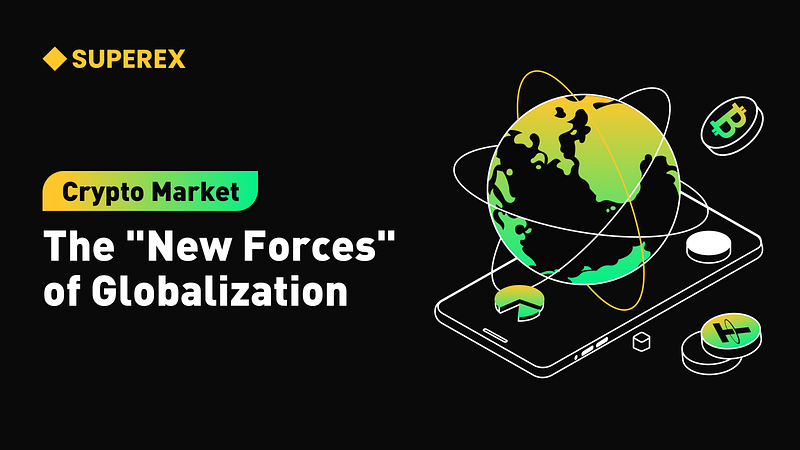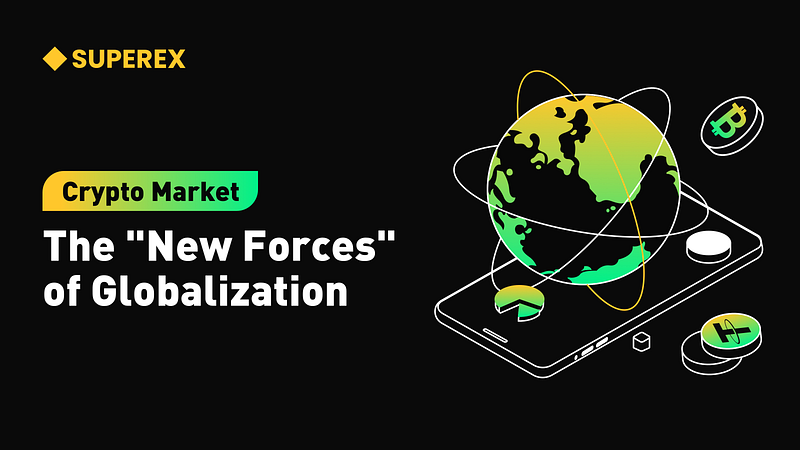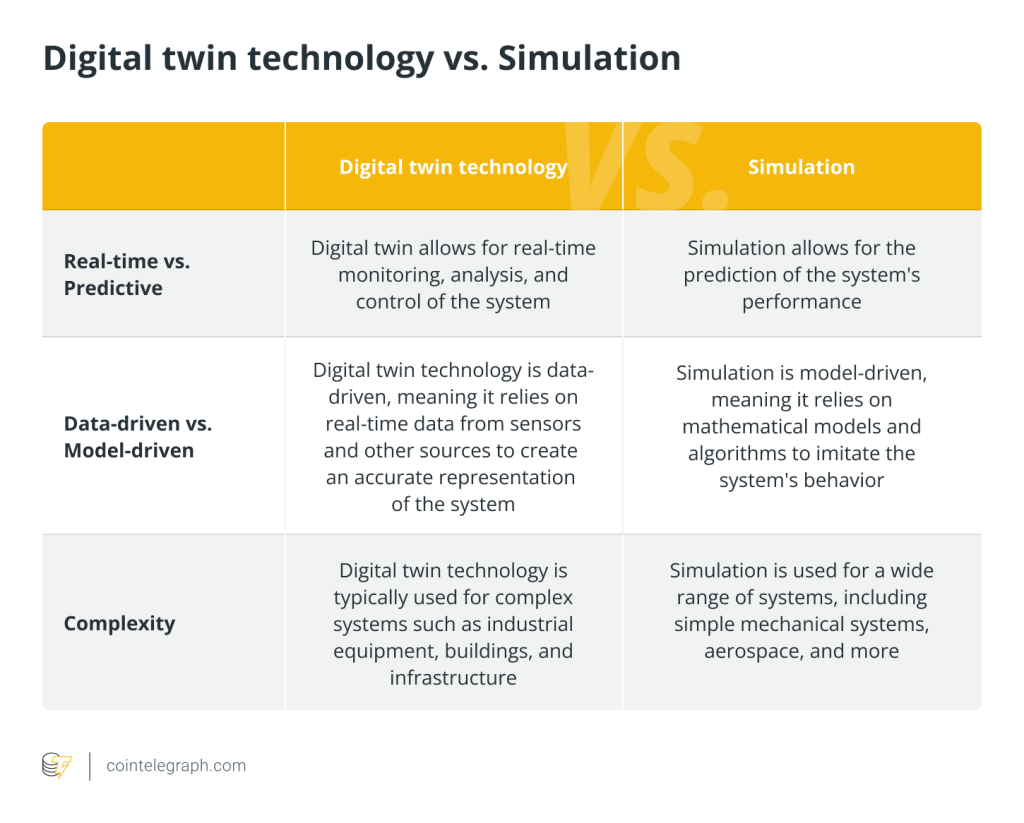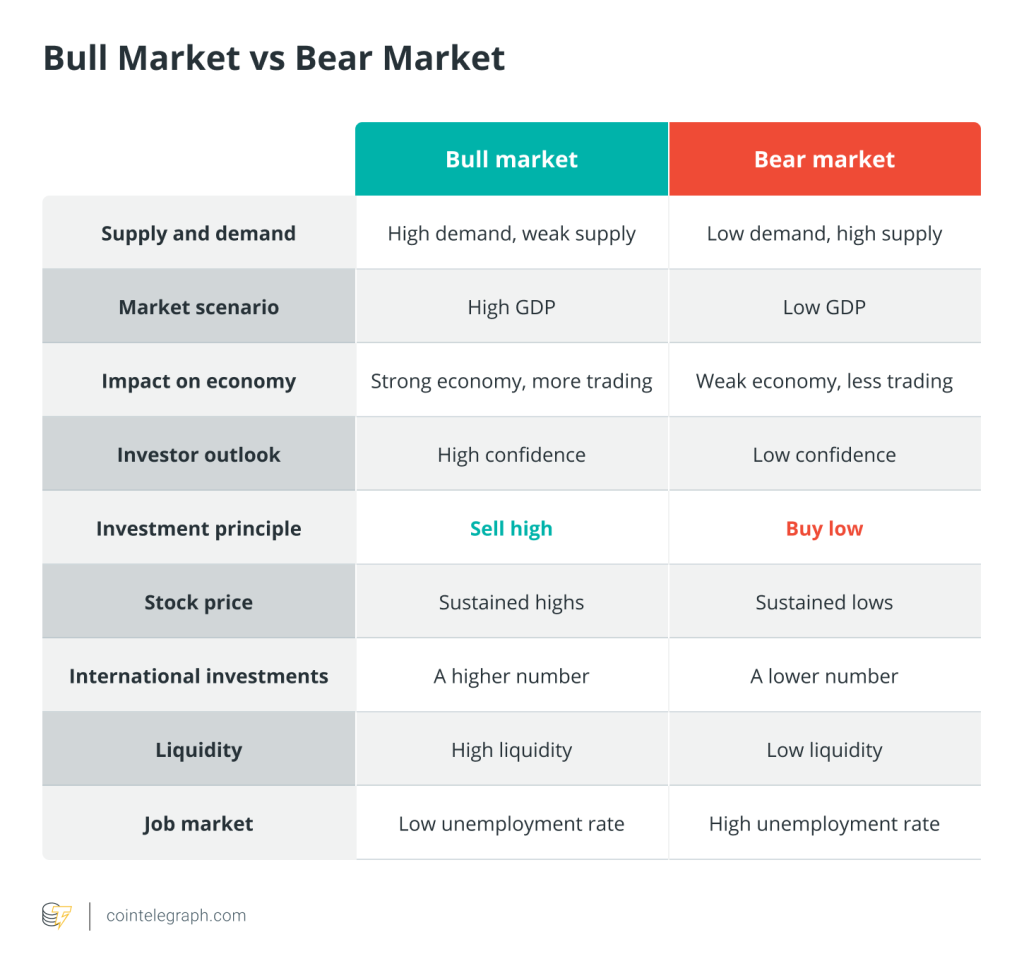SuperEx丨The Crypto Market: A New Force in Globalization

While the physical world faces increasing challenges to globalization, marked by rising protectionism and geopolitical tensions, the digital realm is witnessing the emergence of a new paradigm. Blockchain technology and cryptocurrencies are driving a fresh wave of globalization, one that transcends traditional barriers and fosters equality, openness, and decentralized connections across the globe.
- Click to register SuperEx
- Click to download the SuperEx APP
- Click to enter SuperEx CMC
- Click to enter SuperEx DAO Academy — Space

The Contradictions of De-Globalization vs. Digital Breakthroughs
Over the past year, the global political and economic landscape has experienced significant upheaval. From the prolonged Russia-Ukraine war to escalating conflicts in the Middle East, and major economies restructuring supply chains, the momentum of globalization has seemingly stalled. Developed nations have turned to protectionist policies, aiming to safeguard critical industries domestically. However, this shift has led to rising costs, inefficiencies, and greater global fragmentation.
In contrast, the digital world is witnessing the rapid rise of cryptocurrencies, which represent a new form of globalization. In 2024, the U.S. approved multiple Bitcoin spot ETFs, paving the way for Bitcoin’s integration into mainstream financial markets. This milestone, coupled with nations like El Salvador adopting Bitcoin as legal tender, has propelled cryptocurrencies onto the global stage, fostering broader adoption across continents.
The Crypto Market: A Bridge to Digital Globalization
Unlike traditional globalization, which is often driven by political and economic forces, the crypto market is built on blockchain technology. It showcases several distinct advantages:
- Decentralization and Inclusivity
Traditional globalization often concentrates resources and power in the hands of a few developed nations and large multinational corporations. Cryptocurrencies, through blockchain technology, enable peer-to-peer value exchange without intermediaries, allowing individuals from all regions to participate in the global economy equally. - Borderless Economic Systems
Cryptocurrency transactions are not bound by geographical limitations. This “borderless currency” feature makes crypto a natural vehicle for globalization. Whether it’s a farmer in El Salvador or an investment manager in the United States, both can seamlessly exchange value on the same blockchain network, bypassing traditional financial barriers. - Trust Through Technology
Traditional financial systems rely on trust in governments, institutions, or brands. Blockchain technology, with its transparent distributed ledgers and smart contracts, establishes a trustless system where trust is embedded in code and consensus mechanisms.
Nations and Corporations: Dual Engines Driving Crypto Adoption
The global crypto market is gaining traction as both nations and corporations recognize its strategic value:
- Economic Breakthroughs for Developing Nations
Smaller economies like El Salvador and the Central African Republic are using cryptocurrencies to escape the constraints of traditional financial systems. By adopting Bitcoin as legal tender, these nations attract global investment and assert monetary independence, reducing reliance on dominant fiat currencies like the U.S. dollar. - Corporate Expansion in Blockchain
Multinational corporations are also embracing blockchain and cryptocurrencies. Companies like Meta, Visa, and PayPal are investing heavily in crypto payments and decentralized applications, carving out new business models and securing their positions in the future digital economy. - Proactive Government Policies
The approval of Bitcoin spot ETFs in the U.S. and other progressive regulatory measures indicate a growing acceptance of cryptocurrencies. These developments enhance the legitimacy of crypto markets and provide global investors with more secure entry points.
2025 Outlook: Accelerating a New Globalization Paradigm
Looking ahead, the globalization of the crypto market is poised to deepen in several key areas:
- Broader National Adoption
By 2025, more countries are expected to follow in the footsteps of El Salvador, integrating cryptocurrencies into their financial systems. This shift will not only improve financial inclusion but also solidify cryptocurrencies’ role in mainstream economies. - The Rise of Decentralized Finance (DeFi)
DeFi is reshaping traditional finance by enabling decentralized lending, trading, and saving mechanisms. These platforms allow global users to participate in financial activities without intermediaries, fostering a new wave of global financial inclusion. - The Popularization of Web3 Technologies
Web3, the blockchain-based next-generation internet, empowers individuals to own and control their data and wealth. The proliferation of decentralized applications (DApps) will inject new vitality into the global digital economy, accelerating the adoption of cryptocurrencies.
Conclusion: A New Narrative for Globalization
As historian Yuval Noah Harari argues in his book Nexus, the progress of human civilization often hinges on powerful narratives. Cryptocurrencies are crafting a new narrative for globalization: one rooted in technology, driven by inclusivity, and built on trustless systems.
This emerging model of globalization is not just an alternative to traditional methods but may well become the dominant framework for the future. As nations, corporations, and individuals increasingly adopt crypto assets, the crypto market is evolving from an experimental space into a cornerstone of global economic activity.
In 2025, how will this “new force” in globalization reshape our world? The answer lies in the expanding possibilities of a decentralized future.







Responses